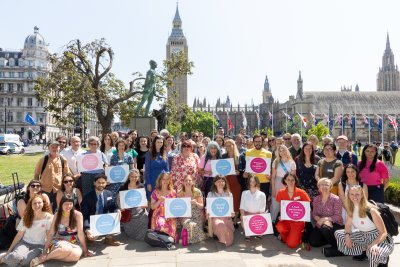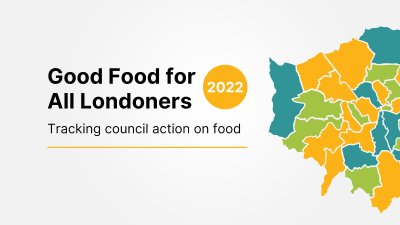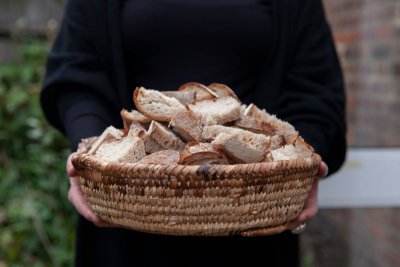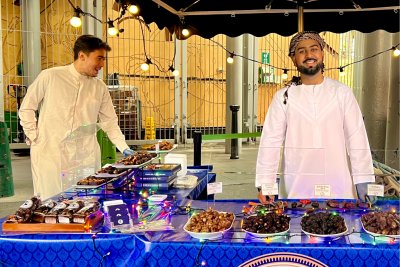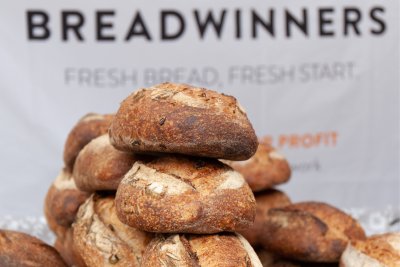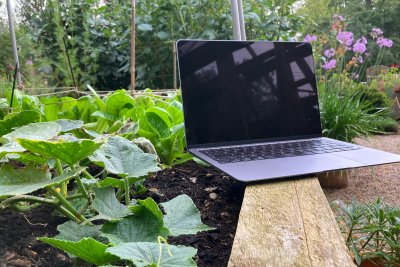Good Catch launches at Billingsgate Fish Market
(London, UK – September 17) Over 50 leading chefs, restaurateurs, seafood suppliers and caterers turned out on Tuesday to participate in the launch of ‘Good Catch’, an initiative of Seafood Choices Alliance, the Marine Conservation Society, the Marine Stewardship Council and Sustain: the alliance for better food and farming. This joint initiative aims to help chefs and restaurateurs find practical solutions to sourcing, serving and promoting sustainable seafood.
Tuesday’s event included a seafood cooking demonstration by Rob Aikens, a tour of the Billingsgate Market, a workshop designed to help chefs and restaurateurs make the switch to more responsible seafood, and an ‘Agony Aunt’ panel, comprised of Peter Weeden of Paternoster Chophouse, Caroline Bennett of Soseki and Moshi Moshi and Geetie Singh of the Duke of Cambridge. Yesterday’s event also launched the first tool to be released through ‘Good Catch’, the Good Catch Manual – a rough guide to seafood sustainability, designed to help seafood buyers navigate the complexities of responsible seafood procurement.
The Good Catch Manual includes the most recent recommendations from the Marine Conservation Society’s fishonline website (updated September 2008) on over 50 species consumed in the UK. These ratings are combined with top tips to ask suppliers, information on the Marine Stewardship Council’s fisheries certification scheme and Chain of Custody programme for restaurants, as well as additional resources and materials for those in the foodservice industries looking to make their businesses more sustainable. To download the Good Catch manual, visit www.sustainweb.org/goodcatch/.
The ‘Agony Aunt’ session allowed those who are thinking about making changes to their business to ask questions of chefs and restaurateurs who are actively pursuing a sustainability agenda. Peter Weeden of Paternoster Chophouse, when asked about his experience with the growing sustainability movement, said: “When I was starting out in this business, sustainability wasn’t on the agenda. So much has changed over the last five years, and it’s obvious my customers take an active interest in knowing where their fish comes from and how it was caught. For me, it’s a real pleasure to be able to communicate my efforts to them, and also to my peers. ‘Good Catch’ makes it that much easier to make positive seafood choices.”
Rob Aiken’s cooking demonstration allowed attendees to see the creative ways underused, sustainable species such gurnard and line-caught pollack could be deliciously prepared. Aikens also served mackerel salad with watercress and hard-boiled eggs, barbequed Cornish sardines on toast with shallot chutney and basil, and Shetland rope-grown mussels in cider and calvados.
The workshop session included an overview of fisheries’ environmental issues from the Marine Conservation Society, tips from Sustain and Seafood Choices Alliance for restaurants looking to improve their seafood sourcing and sustainability, and the Marine Stewardship Council’s Chain of Custody process for restaurants, which allows their ‘blue tick’ logo to be displayed on menus.
One chef noted the usefulness and practical application of the topics covered at the workshop, and said there was a ‘100% chance’ he would make some seafood sustainability changes to his business after the event.
The launch concluded with a kedgeree and bubbles brunch. In keeping with the idea of using a variety of sustainable species, the kedgeree was prepared with smoked coley from the North Sea, instead of the more traditional haddock.
For more information, please visit http://www.goodcatch.org.uk/. To download the Good Catch manual, visit http://www.seafoodchoices.org/resources/goodcatch.php
-end-
NOTE TO EDITORS:
‘Good Catch – cooking for change, serving the future’
Good Catch aims to help people in foodservice navigate the subject of seafood sustainability. It brings together the work of four organisations: the Marine Conservation Society (MCS), the Marine Stewardship Council (MSC), SeaWeb’s Seafood Choices Alliance and Sustain. In addition to the ‘Good Catch Manual – a rough guide to seafood sustainability’, the initiative will direct foodservice professionals to a range of user-friendly materials and activities on sustainable seafood. Presented together through Good Catch, these create a collection of clear, consistent information and practical support, specifically designed to help restaurants and related businesses improve the sustainability of the seafood they buy, serve and promote. http://www.goodcatch.org.uk/
Marine Conservation Society
The Marine Conservation Society (MCS) is the UK charity dedicated to caring for our seas, shores and wildlife. MCS campaigns for clean seas and beaches, sustainable fisheries, and protection for all marine life. The MCS fisheries programme promotes sustainable seafood consumption through its consumer awareness programme and by working with the foodservice, supply sector, and industry. For more information visit http://www.fishonline.org/ or http://www.mcsuk.org/.
Sam Wilding of the MCS said: “The MCS’s fishonline website gives advice for almost every variety of fish to be found on sale in the UK. This information, alongside the supplier tips and information found in the Good Catch Manual, can help chefs and restaurateurs source their seafood more responsibly.”
Marine Stewardship Council
The MSC is an international non-profit organization that was set up in 1997 to promote solutions to the problem of overfishing. The MSC runs the only widely recognized environmental certification and eco-labeling program for wild capture fisheries. It is the only seafood eco-label that is consistent with the ISEAL Code of Good Practice for Setting Social and Environmental Standards and UN FAO guidelines for fisheries certification. The FAO “Guidelines for the Eco-labeling of Fish and Fishery Products from Marine Capture Fisheries” require that credible fishery certification and eco-labeling schemes include:
- Objective, third-party fishery assessment utilizing scientific evidence;
- Transparent processes with built-in stakeholder consultation and objection procedures;
- Standards based on the sustainability of target species, ecosystems and management practices.
The MSC has offices in London, Seattle, Tokyo, Sydney, The Hague, Edinburgh and Berlin. In total, more than 120 fisheries are engaged in the MSC program with 32 certified, 79 under assessment and another 20 to 30 in confidential pre-assessment. Together the fisheries record annual catches of more than 5 million tons of seafood. Of fish for human consumption, they represent more than 42 percent of the world’s wild salmon catch, more than 40 percent of the world’s prime whitefish catch and 18 percent of the world’s lobster catch. Worldwide, more than 1,600 seafood products resulting from the certified fisheries bear the blue MSC eco-label. . For more information about the MSC please call James Simpson on 020 7811 3315 or email james.simpson@msc.org. http://www.msc.org/
“It has never been easier to source and promote MSC-certified fish in restaurants,” said Laura Stewart of the MSC. “The recent announcement by Compass Group UK & Ireland means that a diversity of their diners, from students and pupils to scientists and bankers, will have a wide-ranging choice of MSC-labelled seafood. The Marine Stewardship Council is excited to be involved with Good Catch to make it that much easier for restaurants and chefs to engage in the MSC Chain of Custody process, identifying sustainable choices with the MSC logo.”
Seafood Choices Alliance
Seafood Choices Alliance, an international programme of SeaWeb, provides leadership and creates opportunities for change across the seafood industry and ocean conservation community. Seafood Choices Alliance is about synergies and identifying creative solutions to long-held challenges. By building relationships and stimulating dialogue, Seafood Choices is encouraging and challenging all sectors of the seafood industry along the path toward sustainability. http://www.seafoodchoices.org/ or http://www.seaweb.org/
“Sourcing and eating sustainable seafood has never been more important,” said ‘Good Catch’ coordinator Emily Howgate of Seafood Choices Alliance. “Chefs and restaurateurs are in a unique position to influence both the supply chain and consumers when buying and serving seafood, by supporting and offering sustainable options. Good Catch hopes to make it that bit easier for them to be able to do this.”
Sustain – the Alliance for Better Food and Farming
Sustain advocates food and agriculture policies and practices that enhance the health and welfare of people and animals, improve the working and living environment, promote equity and enrich society and culture. Through its London Food Link arm, Sustain works on the Greener Food project, providing restaurants and catering businesses with advice on sourcing more sustainable ingredients. www.sustainweb.org or http://www.londonfoodlink.org/
Charlotte Jarman of Sustain said: “Many consumers are increasingly aware of issues such as overfishing, and want to know that the fish they eat has been sourced responsibly. Good Catch will help more and more businesses put sustainability first - and respond to this market - by providing much-needed training and resources.”
Published Monday 22 September 2008
London Food Link: London Food Link brings together community food enterprises and projects that are working to make good food accessible to everyone in London to help create a healthy, sustainable and ethical food system for all.
